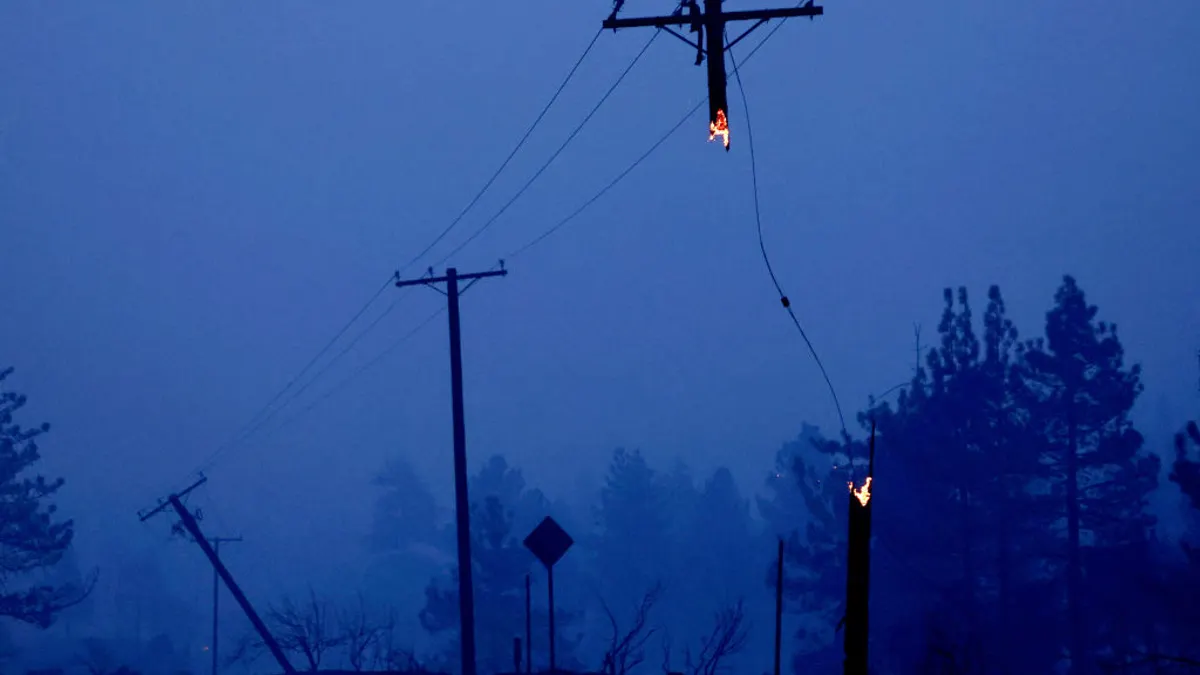The suspense is over. After months of speculation, President Obama has nominated Norman Bay to lead the Federal Energy Regulatory Commission (FERC).
The White House originally tabbed former head of the Colorado Public Utilities Commission (PUC) Ron Binz to replace exiting Chairman Jon Wellinghoff in June 2013. But Binz soon met his end in the Senate Energy Committee after coal-country Sen. Joe Manchin (D-W. Va.) crucially refused to support his nomination.
Wellinghoff left his post in November, with Commissioner Cheryl LaFleur chosen to lead FERC on an interim basis. Observers speculated over a number of qualified candidates, with Utility Dive predicting that Norman Bay, a relative dark horse, would wind up as the eventual nominee. On Thursday, that prediction turned fact as the White House announced Bay's nomination for FERC chairman.
But who is Norman Bay? Why was he chosen? And will he make it through what is no longer a routine confirmation process?
We have the answers to those questions and more.
Who is Norman Bay?
It's not an unreasonable question, but Norman Bay is not a complete unknown.

Since 2009, Bay has been the Director of Enforcement at FERC, where he led the regulatory agency in clamping down on energy market manipulation. During that time, FERC very publicly levied multi-million dollar fines against major financial players like JPMorgan, Deutsche Bank and Barclays.
But Bay hasn't always been in the energy sector.
After coming out of Harvard Law School, Bay clerked with a judge on the Ninth Circuit Court of Appeals and later worked in the Legal Advisor's Office at the U.S. State Department. Bay became a federal prosecutor with the Department of Justice in 1989, working cases in the District of Columbia and New Mexico.
In 2000, Bay got his big break. He was named interim U.S. Attorney for the district of New Mexico, in effect becoming the first Chinese-American U.S. Attorney. Bay was nominated for the permanent position by President Bill Clinton shortly thereafter. Bay resigned in 2001 after handling the controversial Wen Ho Lee case.
After resigning, Bay spent seven years as a law professor at the University of New Mexico, teaching Criminal Law, Evidence and Constitutional Law. Bay was then named Director of Enforcement at FERC in 2009. In early 2014, he was nominated for Chairman.
The Bay pick: What's next?
Ron Binz's confirmation process was unusually public and political for a FERC nominee.
Pro-coal groups branded Binz as an anti-hydrocarbon activist, despite the regulatory agency having no role in picking winners and losers. Tapping Bay was a logical choice for the Obama administration, as he has far less of a record to attack than Binz did.
The key for Bay is making past the Senate Energy Committee, according to Darius Dixon at Politico: "As with Binz, the pinch point for Bay will be the Senate energy committee, where every Democratic vote will matter if Republicans line up against him. But once he’s out of committee, the recent changes to the filibuster rules in the Senate mean he almost certainly gets confirmed."
But just because Bay is not as controversial as Ron Binz does not mean his confirmation process will be smooth sailing.
The spokesman for Sen. Lisa Murkowski (R-AK) said: “Sen. Murkowski has not yet had a chance to fully review the nomination, but its noteworthy that the president has chosen to elevate to the post of chairman — over clearly qualified commissioners — a FERC employee who has not served on the commission. It’s also curious that the president has for the second time this Congress identified someone he believes should jump over the sitting commissioners.”
Meanwhile, pro-fossil fuel groups are already circling their wagons.
“The FERC is no place for anti-hydrocarbon ideologues like Ron Binz, and we stood strong with our coalition partners against his ultimately doomed confirmation,” American Energy Alliance President Thomas Pyle said in a statement following Bay's nomination. “The announcement today that the White House will nominate Norman Bay is due the same level of scrutiny that was applied to Mr. Binz, and we are hopeful that his confirmation process will leave no stone unturned.”
Despite his lack of a public opinion on the issue of carbon emissions, Bay will likely face significant opposition to his nomination. Lest it needs to be said, FERC doesn't pick the power supply mix; it regulates the nation's gas pipelines, electric transmission grid and energy markets.
But that won't matter too much to the opposition. President Obama has made it his mission to significantly reduce carbon emissions while in office, largely through EPA regulation. For that reason alone, anyone that the White House nominates to lead FERC will face hostility from a number of interest groups.
If Bay is confirmed, he can be expected to bring his expertise in criminal law and national security to bear. Strictly enforcing market regulations and improving cybersecurity for the nation's power grid and gas pipelines would likely be near the top of Bay's priority list as FERC Chairman.






















